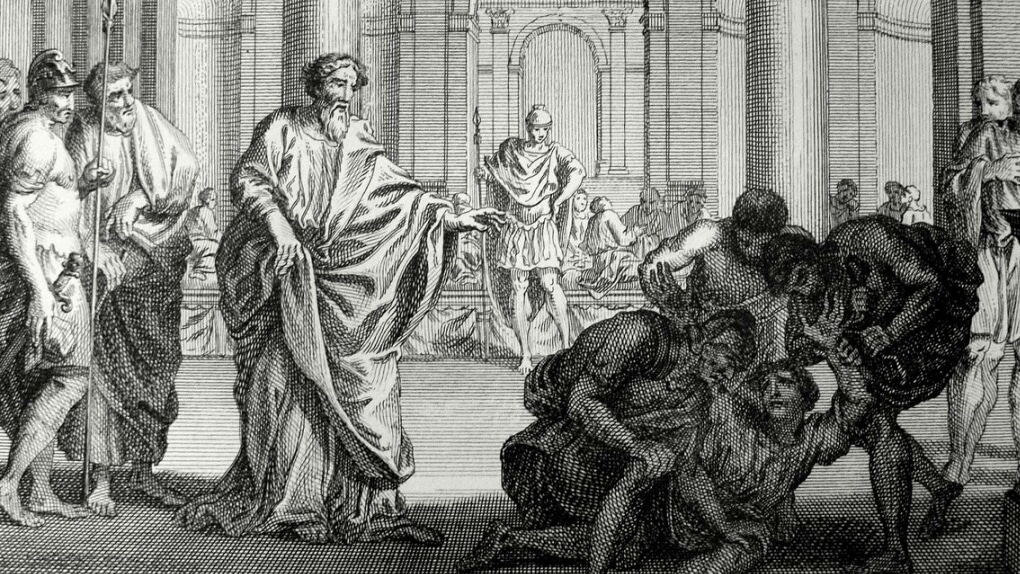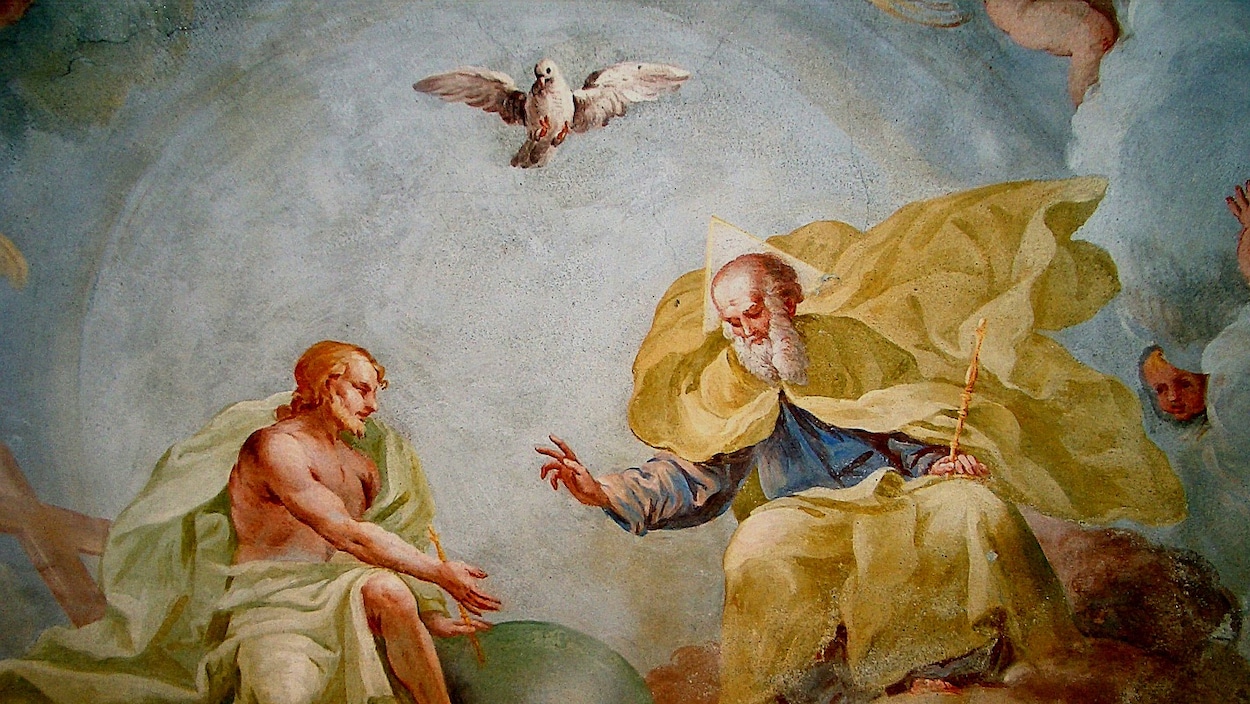Once there was a doctor who was known for being both a kind and caring person and a very competent physician. Over the years he became well-off financially, and was able to afford nice things, including fine clothing, but twice a year he wore a special coat—one that was out of style, had a patched sleeve, and was rather ragged and cheap-looking. All the members of his staff wondered about this unusual and dingy-looking coat, but no one dared to ask him why he wore it— until finally one day a priest who was a patient of his questioned him about it. The doctor answered, “Well, Father, I haven’t told anyone this story, but I guess you’d understand. When I was a young intern in lower Manhattan, I had just returned to my little apartment one cold, windy night after a long shift at the hospital. There was a pounding on my door, and it turned out to be a little girl who told me her parents had sent her to get me; her brother was dying, and they didn’t know what to do. I hurried after her, and she led me to a dilapidated tenement building one block over. We went up a filthy staircase to a one-room apartment where a malnourished child was lying terribly sick, with his anxious parents hovering over him. I did what I could, but it was no use; the boy died a few minutes later. I was shivering—not only because the boy died, but also because that poor family’s wretched apartment had no heat. The father saw me shivering, took off his coat— this very coat here—and said, ‘Here, you’re cold. Thank you for trying to save our boy.’ I didn’t want to take the coat—the man needed it far more than I did—but somehow I knew I had to accept it, because it was the only way that couple had to thank me, and refusing it after their son had just died would make them feel even more helpless. So I took the coat—and now I wear it twice a year: on the anniversary of the boy’s death as a way of remembering him, and on the anniversary of the day I received my medical diploma as a way of reminding myself of what it’s all about” (Bausch, Telling Stories, Compelling Stories, p. 96). Sometime clothes are important symbols; they can convey authority, inspire confidence, express certain moods, lift our feelings, or even remind us of what really matters. Jesus tells us today that we have to wear the proper spiritual “clothes” to be allowed into His heavenly wedding feast—and the garment we need is created out of our acts of love.
The Bible often uses the idea of food of a way of expressing God’s care for His people, and the image of a joyous banquet as a description of heaven. The prophet Isaiah foretold a day when the Lord would provide on His holy mountain a feast of rich foods and choice wines for all peoples; at this time God will remove the web of sin that ensnares us, wipe away our guilt, and destroy death forever. In response, we will cry out: “This is the Lord for Whom we looked; let us rejoice and be glad that He has saved us!” Jesus uses this same image of a banquet in the Gospel of Matthew (22:1-14)—but He adds the warning that while everyone is invited, not everyone will be able to take part. There will be many people who ignore the invitation for various reasons or fail to take it seriously; some will even reject it in a violent way. There will also be persons who want to come in to the wedding feast, but only on their own terms, as symbolized by the man who was not properly dressed. As Jesus warns us, we must be prepared to enter into His presence, and this means not only acknowledging Him as Lord, but also following His example and living out our faith by doing good deeds in His Name. Heavenly joy is offered to everyone, but only those who live lives of love on earth will be able to experience it.
In his Letter to the Philippians (4:12-14, 19-20) St. Paul thanks the Philippians for the material assistance they sent as a sign of their gratitude for his having preached the Gospel to them—and we too are called to link our faith with good deeds. Next weekend the Church observes Mission Sunday, when we are invited to support by our prayers and donations the Society of the Propagation of the Faith—the Church’s principal agency for missionary work. The Society is at work in dozens of countries throughout the world, preaching the Gospel, training future priests and nuns from among the native peoples, educating young people, providing health care, and addressing some of the most urgent physical and material needs of the poor. In the country of India, for instance, when Mother Teresa died five years ago, a newspaper editorial said, “We admire Mother Teresa, [and] not only her, but also those countless missionaries who, like her, have come to our country to heal our sick, teach our children, and help mold our consciences.” In most instances, however, because of its religious nature, the Society receives very little aid from various governments and international charitable organizations—and so the Church’s missionary efforts depend to a large degree on us. Thousands of religious priests, brothers, sisters, and lay catechists are devoting their lives to the spread of the Gospel, and many times, they’re actually risking their lives; indeed, in recent years over 500 missionaries have been killed by terrorists who hate the Church and its message of truth and love. You and I are not expected to take such risks, but we are called to be part of the overall effort to spread the Gospel—and our response to this call will be one of the things determining whether we’ll be ready to enter into Christ’s wedding feast.
Every opportunity we’re given in life to do good or help someone else is actually a gift and blessing, for it allows us to continue working on our wedding garment. Supporting the missions through our prayers and financial contributions, being active in our parish, going out of our way to be loving and accepting of our family members, doing favors for others, forgiving those who offend us, praying for those who irritate us, and treating others as we wish to be treated, are all ways of allowing God’s Holy Spirit to shape and fashion us into the image and likeness of Jesus. We don’t need to proclaim the Gospel by wearing an old, beat-up coat twice a year, but we do need to wear the proper spiritual clothes of love, service, and compassion—and if we do make this effort, we will one day hear Our Lord’s words: “Everything is prepared; come, share in My feast!”








